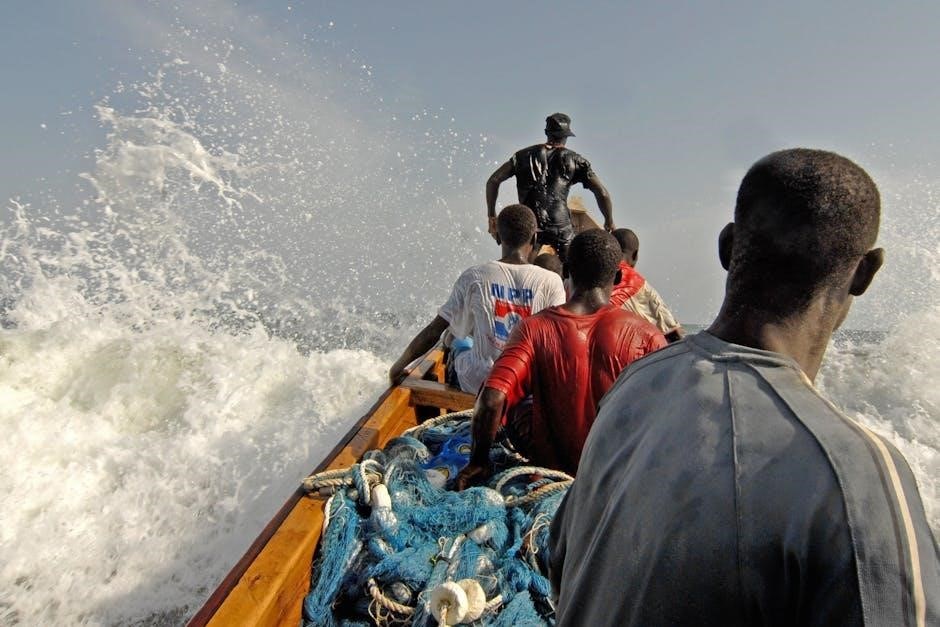The 2024 NJ Saltwater Fishing Regulations provide essential guidelines for recreational anglers, ensuring sustainable fishing practices and conservation of marine resources. Updated annually, these rules help maintain healthy fish populations and promote responsible fishing. Anglers must familiarize themselves with seasonal changes, size limits, and gear restrictions to comply with state and federal laws. NJ Fish and Wildlife enforces these regulations to preserve the marine ecosystem for future generations. Always check the latest updates before planning your fishing trips.
Overview of the Importance of Fishing Regulations
Fishing regulations are crucial for conserving marine ecosystems and ensuring sustainable fish populations. They help protect habitats, prevent overfishing, and maintain biodiversity. By setting size limits, bag restrictions, and seasonal closures, regulations promote responsible angling practices. Compliance with these rules ensures fair access to resources and supports the long-term health of marine life. Regulations also protect vulnerable species and adapt to environmental changes, safeguarding New Jersey’s saltwater fisheries for future generations. Adhering to these guidelines fosters a balanced relationship between recreation and conservation.
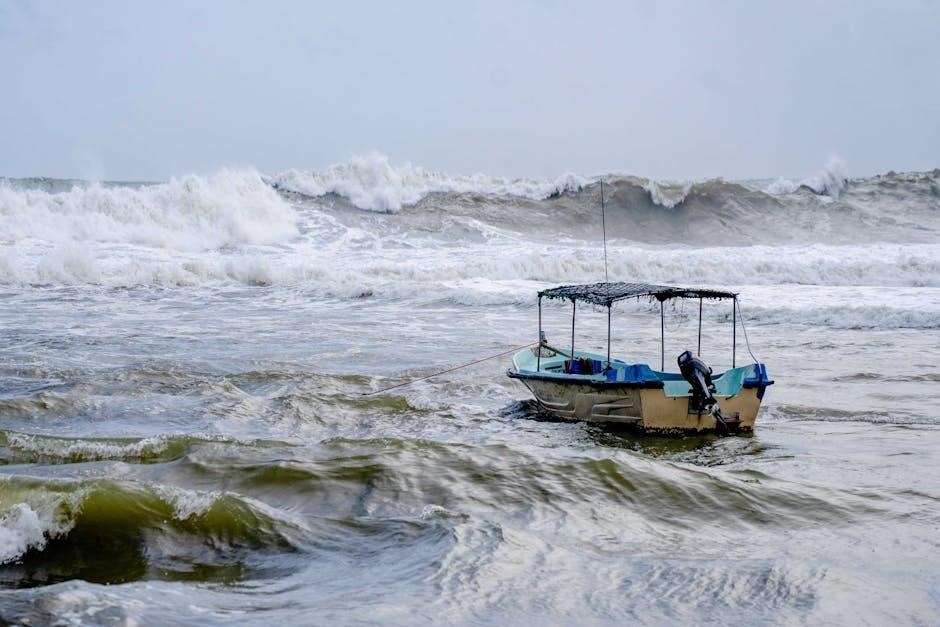
Key Changes in the 2024 Regulations
The 2024 NJ Saltwater Fishing Regulations introduce several important updates to ensure sustainability. Size limits for certain species have been adjusted, and bag limits have been modified to reflect population trends. Seasonal closures for key species like summer flounder and black sea bass have been updated to protect spawning periods. Additionally, gear restrictions now include prohibitions on certain types of fishing equipment to reduce bycatch. These changes aim to balance recreational and commercial fishing interests while preserving marine biodiversity for future generations.
Licensing and Registration Requirements
Registration is required for all saltwater anglers in New Jersey. The NJ Saltwater Fishing Registry is free, easy, and mandatory for recreational fishing activities. Ensure compliance before fishing.
NJ Saltwater Fishing Registry Program
The NJ Saltwater Fishing Registry Program is a free and required registration for all recreational anglers. It helps track fishing activities and manage marine resources effectively. Registration is mandatory for both residents and non-residents engaging in saltwater fishing. This program is part of federal and state efforts to monitor fish populations and ensure sustainability. By registering, anglers contribute to the conservation of New Jersey’s marine ecosystems. Visit SaltwaterRegistry.nj.gov to complete your registration before your next fishing trip.
Obtaining a Recreational Fishing License
To engage in saltwater fishing in New Jersey, anglers must obtain a recreational fishing license. Licenses can be purchased online through the NJ Fish and Wildlife website or at authorized sellers. A resident license costs $22.50, while non-resident licenses are $35.50. Seniors (65+) and children under 16 are exempt. Ensure you carry your license while fishing, as it is required by law. This license helps fund conservation efforts and promotes sustainable fishing practices in New Jersey’s marine waters.
Fishing Seasons and Dates
NJ saltwater fishing seasons vary by species, ensuring sustainable fish populations. Key dates include Black Sea Bass (May 17–Jun 19) and Blowfish (no closed season). Always check NJ Fish and Wildlife for updates to comply with regulations and enjoy a successful fishing experience.
2024 Seasonal Variations for Popular Species
The 2024 NJ Saltwater Fishing Regulations outline specific seasonal variations for popular species to ensure sustainable fishing. Black Sea Bass is open from May 17 to June 19, with a minimum size of 12.5 inches and a bag limit of 10 per person. Blowfish have no closed season, while Hard Clams are limited to 150 per person with no harvest on Sundays. These variations aim to balance recreational fishing with conservation efforts, ensuring healthy fish populations and ecosystem balance. Always refer to the NJ Fish and Wildlife updates for precise details.
Opening and Closing Dates for Key Fish Species
The 2024 NJ Saltwater Fishing Regulations specify opening and closing dates for key species to manage fish populations effectively. Black Sea Bass season runs from May 17 to June 19, while Summer Flounder (Fluke) varies by location, with Delaware Bay allowing fishing from April 1 to October 31. Striped Bass fishing is open year-round but includes a slot limit of 28 to 43 inches for coastal waters. These dates ensure sustainable fishing practices and help conserve marine resources for future generations. Always verify the latest updates before your fishing trip.
Size and Bag Limits
The 2024 NJ Saltwater Fishing Regulations establish minimum size limits and bag restrictions to protect marine resources. Anglers must adhere to these rules to ensure sustainability and compliance.
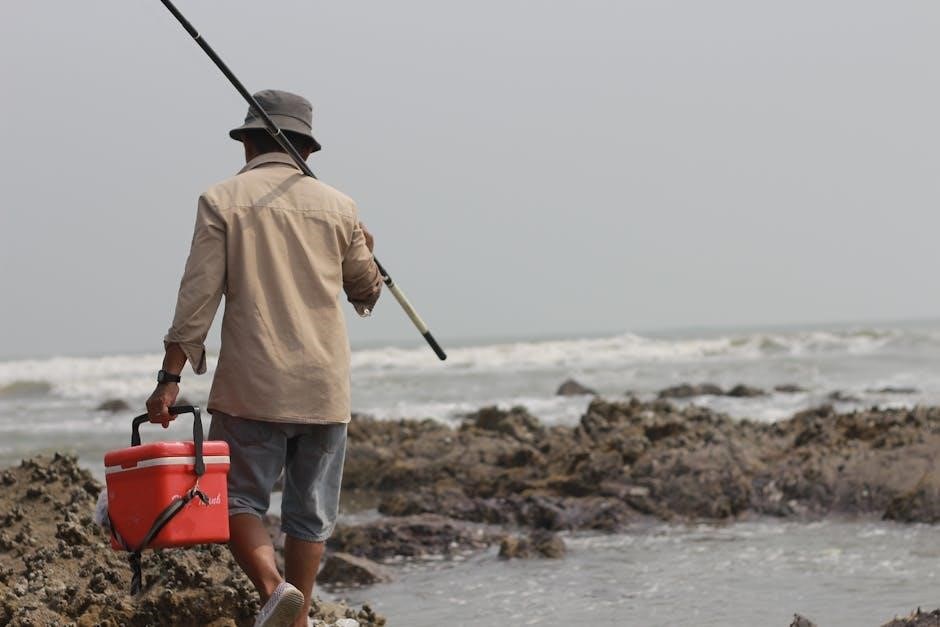
Minimum Size Limits for Recreational Fishing
The 2024 NJ Saltwater Fishing Regulations outline specific minimum size limits to protect juvenile fish and ensure sustainable populations. For example, Summer Flounder (Fluke) have varying limits depending on the fishing location, with 18 inches in most marine waters, while Delaware Bay and Tributaries allow 17 inches, and Island Beach State Park requires 16 inches. Hard Clams must measure at least 1.5 inches, and no filleting or cleaning of fish with size limits is permitted at sea. These rules are enforced to maintain ecological balance and must be strictly followed to avoid penalties.
Bag Limits and Possession Restrictions
Bag limits vary by species to ensure sustainable fishing practices. For Black Sea Bass, the 2024 regulations set a 10 per person limit with a 12.5-inch minimum size during the open season. Tautog (Blackfish) limits differ by region, with stricter restrictions in certain areas. Recreational anglers must adhere to these possession limits to avoid penalties. Exceeding bag limits can harm fish populations and result in enforcement actions. Anglers are encouraged to check the latest updates before each fishing trip to comply with all regulations.
Species-Specific Regulations
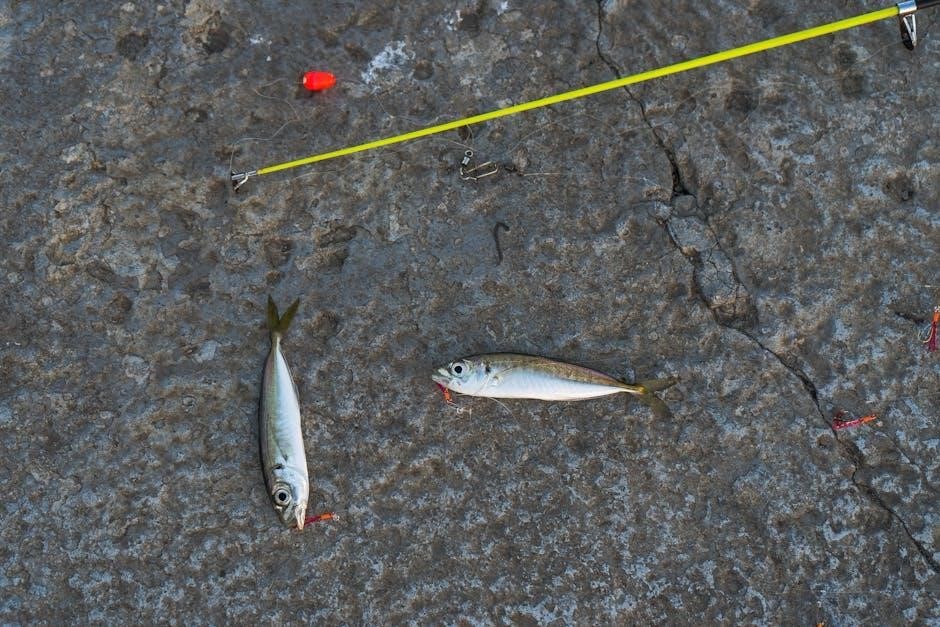
The 2024 NJ Saltwater Fishing Regulations include specific rules for various species to protect marine ecosystems. Anglers must know these rules to comply with local fishing laws.
Summer Flounder (Fluke) Regulations
For 2024, the recreational harvest of Summer Flounder (Fluke) in New Jersey marine waters is regulated by specific size and bag limits. In most marine waters, anglers are allowed a daily bag limit of 3 fish with a minimum size of 18 inches. However, in Delaware Bay and its tributaries, the limit is 3 fish at 17 inches, and in Island Beach State Park, the limit is 2 fish at 16 inches. The season is closed from December 1 to April 30. Anglers must ensure they comply with these regulations to avoid penalties.
Black Sea Bass and Tautog (Blackfish) Limits
For the 2024 fishing season, Black Sea Bass regulations include a minimum size limit of 12.5 inches and a daily bag limit of 10 fish per person. The season is open from May 17 to June 19. Tautog (Blackfish) regulations vary by location, with an 18-inch minimum size limit in most areas and a 4-fish bag limit during the open season. Anglers must check specific regional restrictions to ensure compliance with these limits, as they are essential for maintaining sustainable fish populations and adhering to marine conservation efforts.
Other Species: Scup, Bluefish, and Striped Bass
Scup regulations include a minimum size limit of 10 inches and a daily possession limit of 20 fish. Bluefish has no closed season or minimum size limit but is subject to a daily bag limit of 3 fish. Striped Bass regulations vary by location, with a 28-inch minimum size in certain areas and a 1 fish bag limit. These limits are designed to balance recreational fishing with conservation efforts, ensuring the sustainability of these species in New Jersey’s marine waters. Always verify local restrictions before fishing.
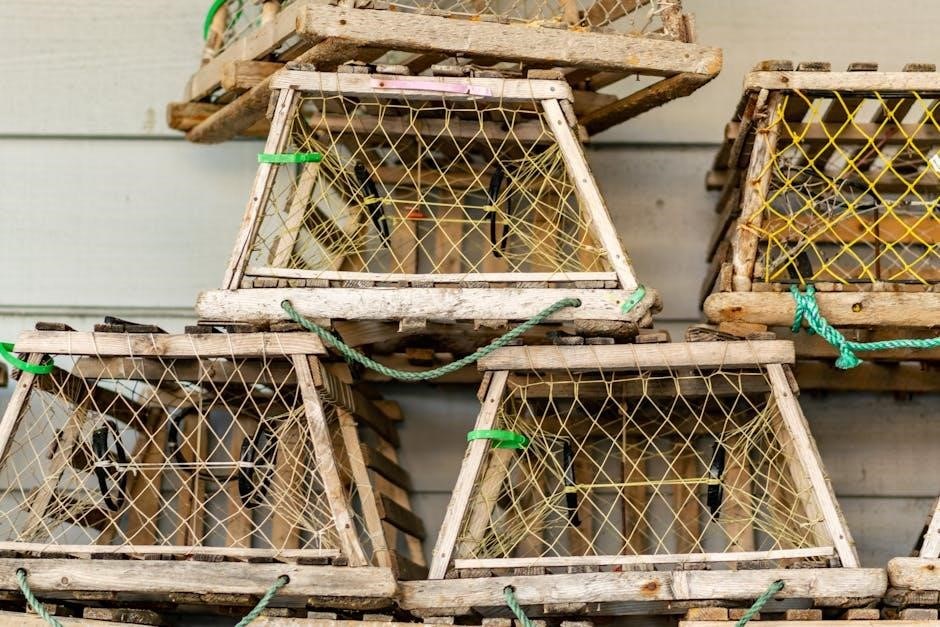
Gear Restrictions and Prohibited Practices
Recreational anglers must use permitted fishing gear such as circle hooks and non-stainless steel hooks. Prohibited practices include dynamiting, electrofishing, and using nets in closed areas. Gillnets are restricted, and traps require special permits. Chumming is allowed but regulated to prevent overfishing. Always check gear specifications to ensure compliance with NJ marine regulations and avoid harming the environment. Proper gear use helps preserve marine ecosystems and fish populations for sustainable fishing.
Permitted Fishing Gear and Equipment
The 2024 NJ Saltwater Fishing Regulations outline specific gear permitted for recreational fishing. Circle hooks are required when fishing for species like striped bass and bluefish to reduce bycatch. Non-stainless steel hooks are mandated to prevent long-term harm to marine life. Gillnets and traps are restricted, with permits required for their use. Chumming is allowed but regulated to avoid overfishing. Anglers must ensure all gear complies with NJ Fish and Wildlife guidelines to promote sustainable fishing practices and protect the marine ecosystem. Always verify gear specifications before use.
Prohibited Fishing Methods and Gear
Certain fishing methods and gear are prohibited under the 2024 NJ Saltwater Fishing Regulations to protect marine life and ecosystems. Gillnets and traps are restricted, requiring special permits for use. Longlines and spears are prohibited in most coastal waters to minimize bycatch and habitat damage. Chumming is allowed but regulated to prevent overfishing. These restrictions ensure sustainable fishing practices and help maintain balanced marine populations. Always refer to the NJ Fish and Wildlife guidelines for detailed information on prohibited gear and methods before engaging in fishing activities.
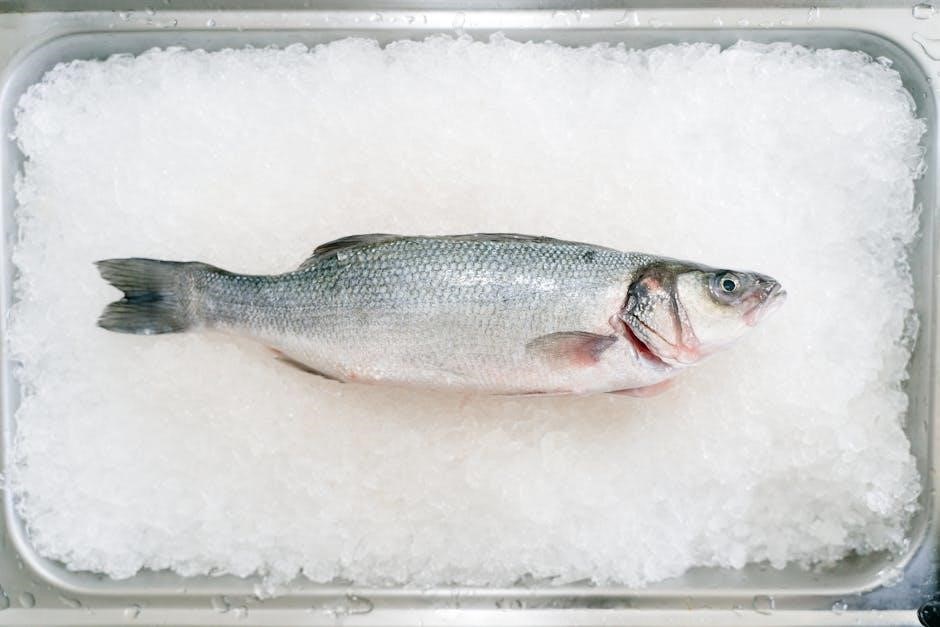
Marine Conservation and Sustainability
The 2024 NJ Saltwater Fishing Regulations emphasize sustainable practices to protect marine ecosystems. Conservation efforts focus on balancing recreational and commercial fishing while preserving fish populations for future generations.
Importance of Sustainable Fishing Practices
Sustainable fishing practices are crucial for maintaining healthy marine ecosystems and ensuring the long-term viability of fish populations. The 2024 NJ Saltwater Fishing Regulations emphasize responsible fishing methods to prevent overfishing and protect habitats. By adhering to size limits, bag restrictions, and seasonal closures, anglers help conserve key species and support biodiversity. These practices also promote the recovery of depleted stocks and ensure that marine resources remain abundant for future generations. Sustainable fishing fosters a balance between recreation, commerce, and environmental stewardship.
Marine Ecosystem Management and Fish Populations
The 2024 NJ Saltwater Fishing Regulations play a vital role in managing marine ecosystems and maintaining healthy fish populations. By enforcing size limits, bag restrictions, and seasonal closures, these rules help prevent overfishing and protect critical habitats. Monitoring programs track species abundance, ensuring sustainable harvests and enabling the recovery of depleted stocks. The regulations also focus on reducing bycatch and preserving biodiversity. These efforts foster a balanced ecosystem, supporting both recreational and commercial fisheries while safeguarding marine life for future generations.
Enforcement and Penalties
Violations of the 2024 NJ Saltwater Fishing Regulations can result in fines, license suspensions, or revocations. Enforcement is conducted by NJ Fish and Wildlife through inspections and patrols.
Monitoring and Enforcement of Regulations
Monitoring and enforcement of the 2024 NJ Saltwater Fishing Regulations are carried out by the NJ Fish and Wildlife Conservation Officers. They conduct inspections and patrols to ensure compliance with size, bag limits, and gear restrictions. Anglers are required to provide proof of registration and licenses upon request. Digital reporting systems and dockside inspections help track catches and prevent overfishing. Enforcement efforts focus on protecting vulnerable species and habitats, ensuring sustainable fishing practices for future generations.
Penalties for Non-Compliance
Violations of the 2024 NJ Saltwater Fishing Regulations can result in fines, license suspensions, or even criminal charges. Non-compliance with size limits, bag limits, or gear restrictions may lead to penalties ranging from $50 to $500 or more, depending on the offense. Repeat offenses can result in higher fines and potential revocation of fishing privileges. Commercial fishing violations may incur additional penalties, including confiscation of catch and gear. Compliance is crucial to avoid legal consequences and support conservation efforts.
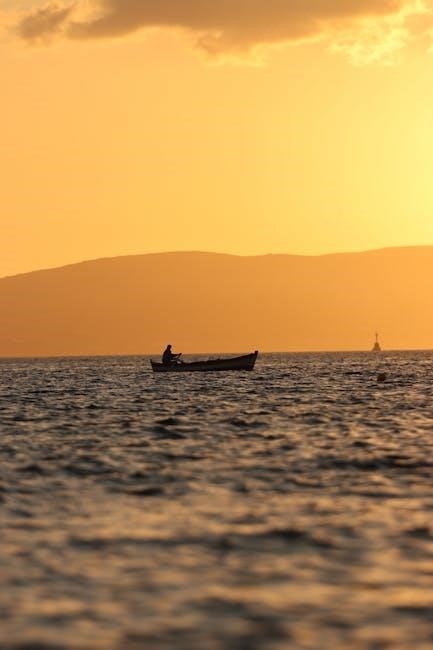
Additional Resources and References
For detailed information, visit the NJ Fish and Wildlife website or download the 2024 NJ Saltwater Fishing Regulations PDF. Stay updated for the latest guidelines and changes.
NJ Fish and Wildlife Website and Publications
The NJ Fish and Wildlife website is a primary source for accessing the 2024 NJ Saltwater Fishing Regulations. It provides detailed information on seasonal variations, size limits, and gear restrictions. The website also offers downloadable PDF guides for easy reference. Additionally, the Marine Digest and other publications are available, summarizing key regulations and updates. Anglers are encouraged to visit the site regularly for the most accurate and up-to-date information to ensure compliance with all fishing rules and conservation efforts.
Downloadable PDF Guides and Updates
The 2024 NJ Saltwater Fishing Regulations PDF is available for download, offering a comprehensive guide to seasonal variations, size limits, and gear restrictions. This quick reference document ensures anglers can easily access essential information. Regular updates are posted on the NJ Fish and Wildlife website, so anglers should check back for any changes. The PDF serves as a convenient resource for planning fishing trips and staying compliant with the latest regulations. It’s a must-have for both experienced and new anglers in New Jersey.
